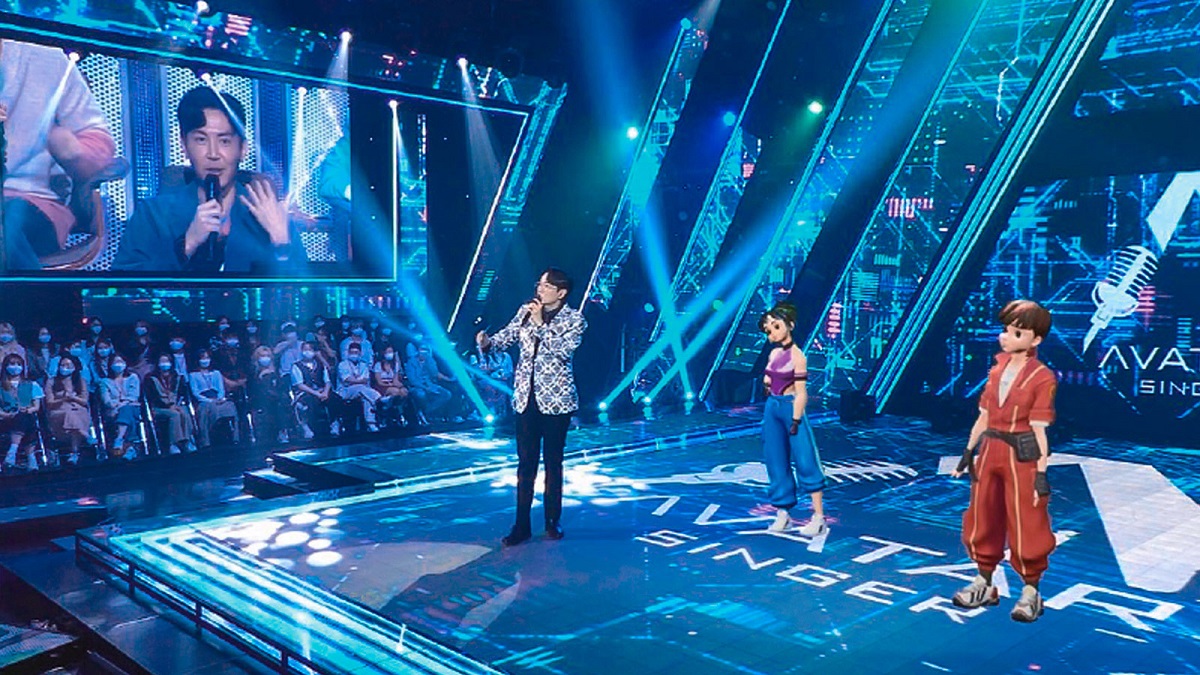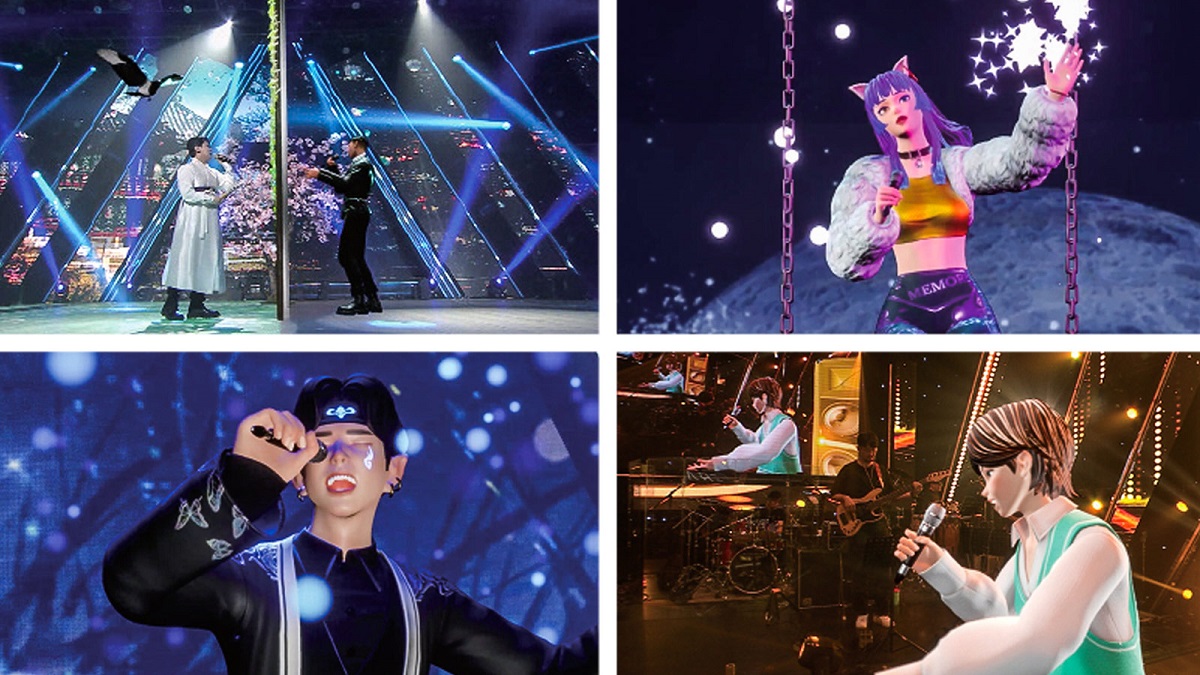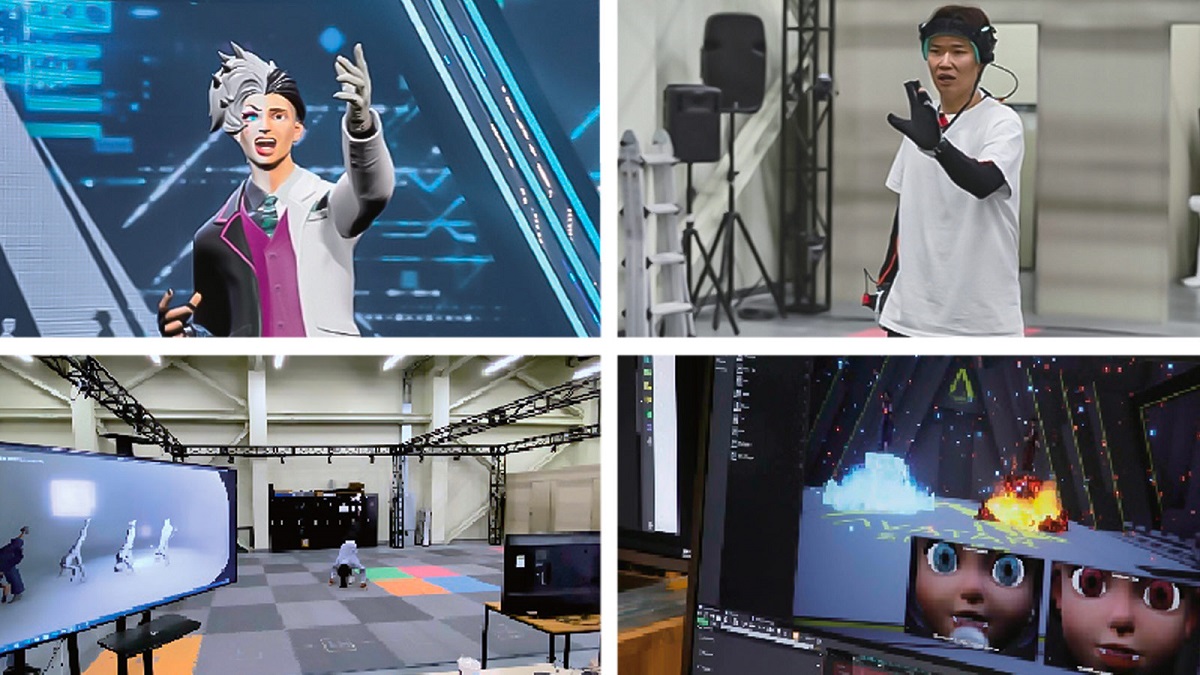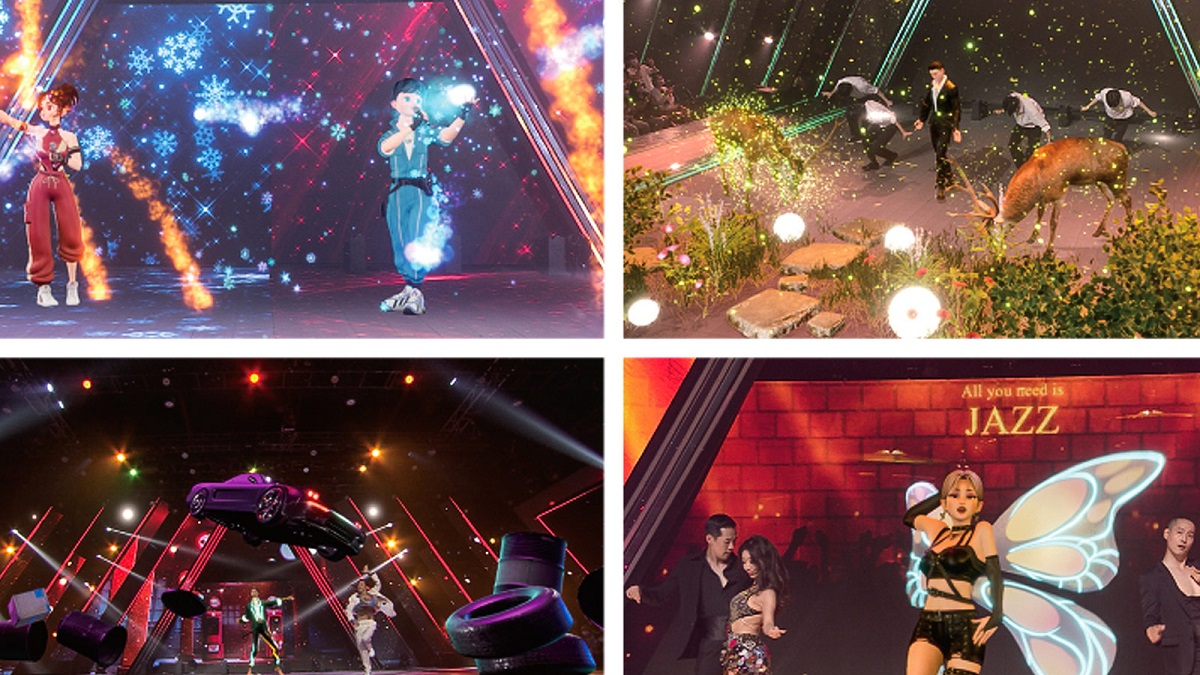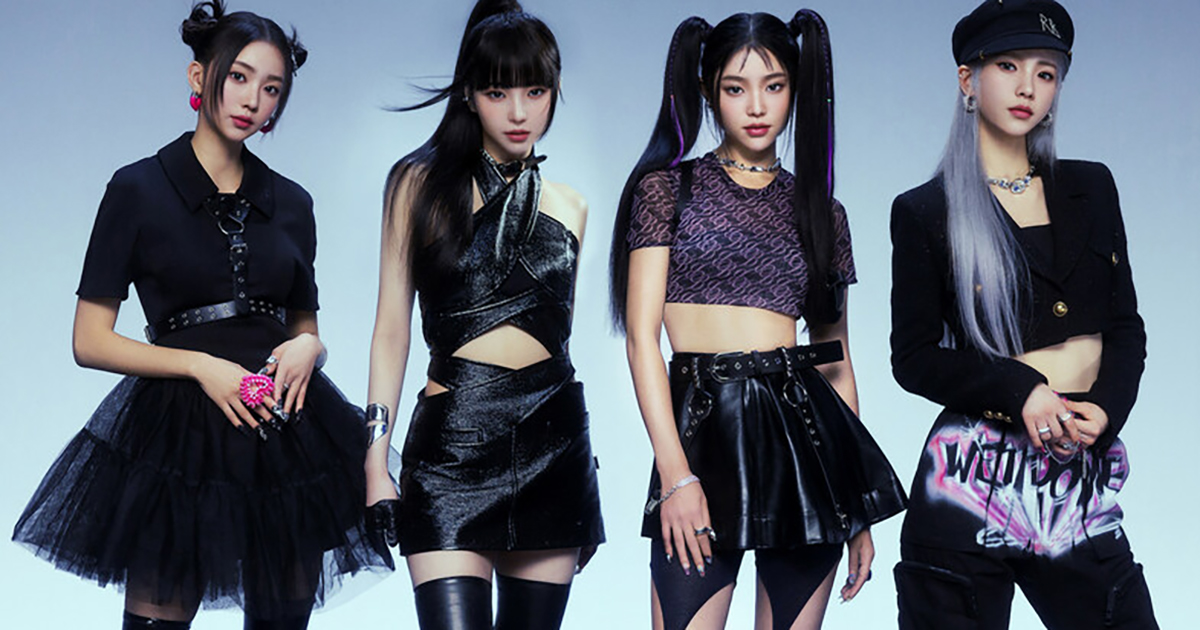
TL;DR
- South Korea is the world’s testing ground for tech, so when K-pop singers compete in a virtual universe what does this tell us about the future of entertainment?
- The popularity of synthetic pop stars in South Korea may be peculiar to that culture. Or is it?
- Could the merger of virtual with the real create a new genre of content?
READ MORE: Will the Metaverse Be Entertaining? Ask South Korea. (The New York Times)
With its highly digital and device literate, young and ultra competitive society, South Korea is looked on as the world’s petri-dish for future media. The current vogue for K-pop stars who use avatars or the popularity of entirely virtual singers and influencers means the country is one to watch.
South Korean tech company Kakao Entertainment, for example, is billing Mave, its artificial band, as the first K-pop group created entirely within the metaverse. It is using machine learning, deep fake, face swap and 3D production technology.
To give them global appeal, the company wants the “girls” of Mave to eventually be able to converse in, say, Portuguese with a Brazilian fan and Mandarin with someone in Taiwan, fluently and convincingly.
The idea, the project’s technical director, Kang Sung-ku, tells Jin Yu Young and Matt Stevens at The New York Times, is that once such virtual beings can simulate meaningful conversations, “no real human will ever be lonely.”
Kakao also runs the virtual world called “Weverse” or simply “W.” In part of this world there’s a game show called Girl’s Re:verse that features 30 singers, eliminated over time, until the last five standing form a band. All are members of established K-pop bands or solo artists. But they are all masked as animated avatars.
Strictly speaking, this is not a metaverse, says the NYT. They are instead proprietary platforms users have to log in to, accepting terms of service and with no sign of any cryptographic features.
But the complete blurring of the virtual with the real is surely one core trait of what will become the metaverse.
Another example is a TV reality show, not dissimilar from The Masked Singer, but with a difference. Avatar Singer is a 15-episode music competition that ran live on Korean TV channel MBN . It features celebrity competitors masked as digital 3D avatars complete with superpowers.
As explained by one of the vendors behind the project, the show live motion capture, facial capture, Unreal Engine, and augmented reality. These enabled the team to “expand the conventional stage into an evolved universe.”

READ MORE: Meet Korea’s New Virtual Singers (Zero Density)
Compared with their Korean counterparts, media companies in the United States have only engaged in “light experimentation” with the metaverse so far, Andrew Wallenstein, president and chief media analyst of Variety Intelligence Platform, tells The New York Times.
Countries like South Korea “are often looked at like a test bed for how the future is going to pan out,” Wallenstein said. “If any trend is going to move from overseas to the US, I would put South Korea at the front of the line in terms of who is likeliest to be that springboard.”
Already Korean “virtual influencers” like Rozy have Instagram followings in six figures and promote real brands like Chevrolet and Gucci.
“We want to create a new genre of content,” said Baik Seung-yup, Rozy’s creator, who estimates that about 70% of the world’s virtual influencers are Korean.
“From a Western perspective, it can seem strange,” Enrique Dans writes in a blog post on Medium. “The [virtual pop] groups all look pretty similar (the manga-style avatars have huge eyes and heart-shaped faces), and are deeply rooted in the cultural codes of the country’s youth.”
He adds, “Young Koreans follow their favorite bands, attend concerts, and celebrate their bands’ rise to popularity as a reflection of their competitive society, where they must gain access to certain schools and universities if they want to find a good job.”
READ MORE: Does the future of K-pop lie in the metaverse? (Enrique Dans)
Son Su-jung, a producer for the show, also says that part of the point was to give K-pop singers — “idols,” as they are called — a break from the industry’s relentless beauty standards, letting them be judged by their talent, not their looks.
“Idols in the real world are expected to be a product of perfection, but we hope that through this show, they can let go of those pressures,” she said.
NAVIGATING THE METAVERSE:
The metaverse may be a wild frontier, but here at NAB Amplify we’ve got you covered! Hand-selected from our archives, here are some of the essential insights you’ll need to expand your knowledge base and confidently explore the new horizons ahead:
- The Metaverse Will Make $5 Trillion By 2030. That Sounds Awesome and… Wait, What Are We Talking About?
- Metaverse Expectations vs. Reality
- A Metacode of Conduct for the Metaverse
- Metaverse Interoperability: Utopian Dream, Privacy Nightmare
- Consumers Are Confused About the Metaverse, But Seriously, Can You Blame Them?


